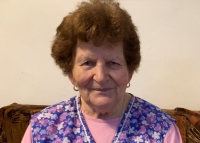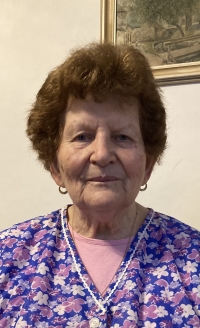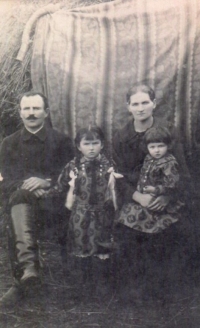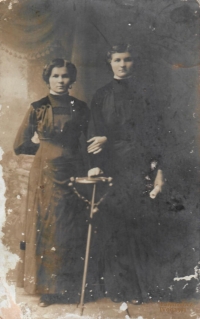Czechoslovakia was like paradise with no murdering Banderites around
Stáhnout obrázek
Soňa Nováková was born in Moštěnice, Volhynia (today’s Ukraine) in 1936 as the fourth and youngest daughter to Filoména Šircová and Josef Širc. Her grandfather Kateřina was six years old when she came to Volhynia from Austria-Hungary with her family. The entire family was forced to convert to the orthodox religion. As a result, Soňa has two birth dates – she was born on 12 April 1936 by the Julian calendar and on 27 April by the orthodox calendar. Later on, she had the date edited to 27 April in her documents. Moštěnice is situated about 2 km from the Polish border. When Soňa Nováková was born, the community was part of Poland but became part of the Soviet Union at the beginning of World War II. The mother and daughter left Volhynia in 1947 to reunite with the father who was serving in General Svoboda’s army in Czechoslovakia. They settled in Hrušovany near Chomutov at first and then relocated to Česká Kamenice near Děčín. This is where the witness completed her primary education and two years of a business academy. In 1957, she married a co-worker and had two children with him. Soňa Nováková was actively involved in the activities of the fellow Volhynian association and joined the Czechoslovak Legion Community. The witness lived in Česká Kamenice near Děčín in 2023.



